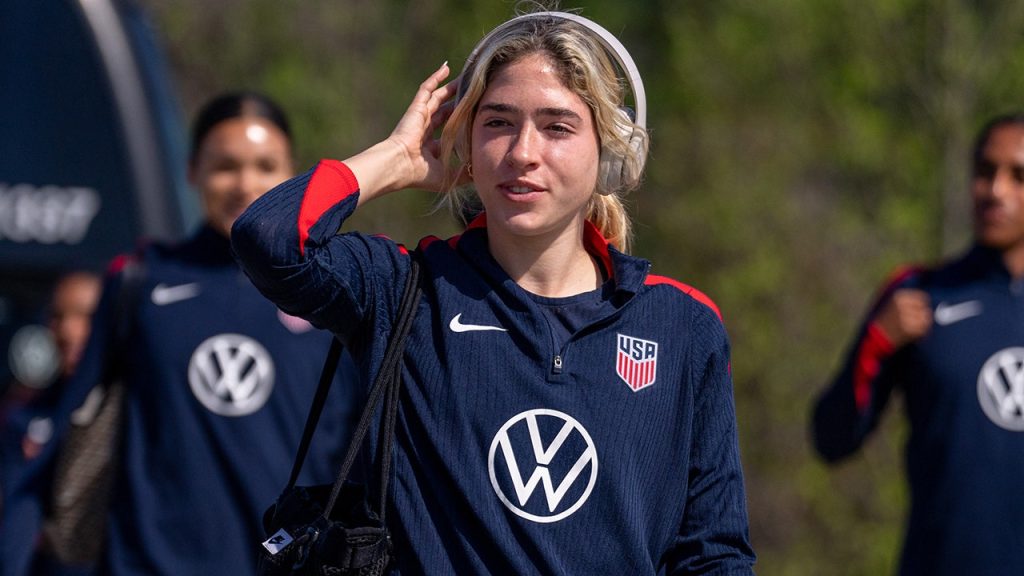US women’s national soccer team star Korbin Albert was booed during a SheBelieves Cup win against Japan due to backlash from her social media posts about the LGBTQ+ community. The booing occurred as she entered the match in the 78th minute after Lindsey Horan gave the U.S. a 2-1 lead on a penalty kick. The U.S. went on to win the match by that score. The animosity towards Albert stemmed from her reposting a TikTok video that included a sermon condemning being gay and feeling transgender. Additionally, a screenshot showed Albert liking an Instagram post mocking Megan Rapinoe’s injury, which led Rapinoe to criticize Albert for promoting hate.
Rapinoe took to Instagram to address the situation, questioning whether those hiding behind their beliefs were truly creating a safer and more inclusive space, or if they were perpetuating hate. She emphasized the impact of hate on individuals, particularly young people, and urged those spreading hate to wake up to the consequences of their actions. Albert, who now wears Rapinoe’s former jersey number, issued an apology for her social media posts, acknowledging that her actions were offensive, insensitive, and hurtful. She expressed disappointment in herself and promised to do better, recognizing the need for everyone to feel safe and respected both on and off the field.
Albert, who plays for Paris Saint-Germain at the club level in France, has made seven appearances for the United States national team and was a starter during the Concacaf Women’s Gold Cup. Despite the controversy surrounding her social media posts, Albert remains a talented young player with potential for growth and development both on and off the field. Rapinoe, who had previously called out those who celebrated her injury, emphasized the importance of empathy and understanding in the face of adversity, maintaining her stance against hate and discrimination in the world of sports and beyond.
The incident involving Albert at the SheBelieves Cup reflects the ongoing tensions and discussions around inclusivity, diversity, and acceptance in the world of sports. While sports have the power to bring people together and inspire positive change, they can also highlight underlying social issues and divisions. The response to Albert’s social media posts underscores the importance of accountability and responsibility for public figures, particularly athletes, who hold a platform and influence over their fans and followers. Moving forward, it will be essential for Albert and other athletes to consider the impact of their words and actions on marginalized communities and strive to create a more inclusive and respectful environment in sports and society as a whole.
As the U.S. women’s national team continues to strive for success on the world stage, it will be crucial for players like Albert to learn from their mistakes, educate themselves on issues of diversity and inclusion, and work towards building a more supportive and empathetic sporting community. The controversy surrounding Albert’s social media posts serves as a reminder of the power dynamics at play in the world of sports and the responsibility that athletes bear in shaping public discourse and attitudes. By addressing and addressing her errors, Albert can take steps towards redemption and growth, ultimately contributing to a more positive and inclusive sporting culture for all.


